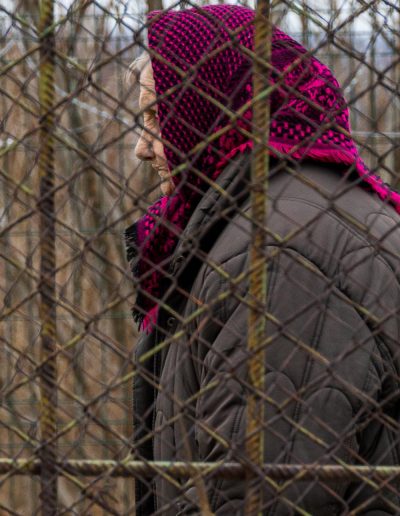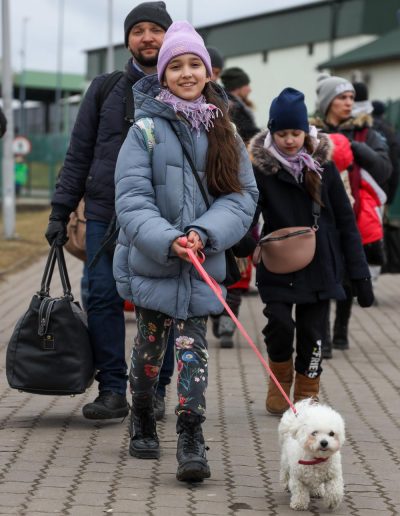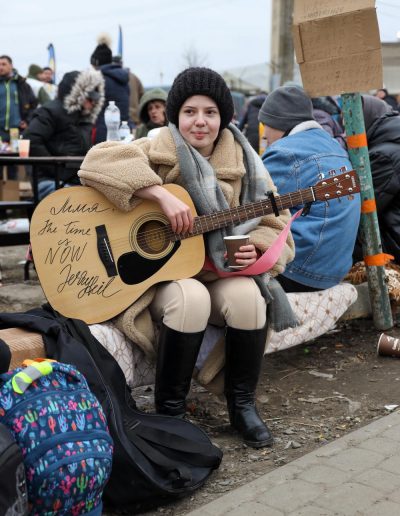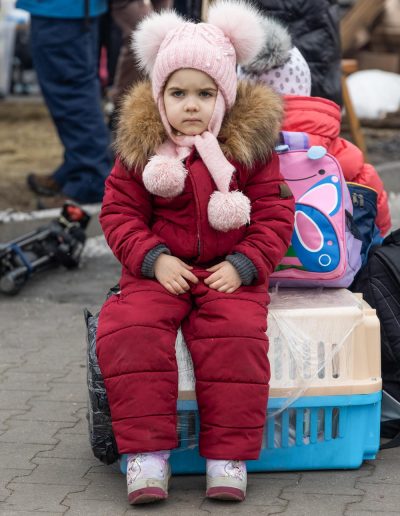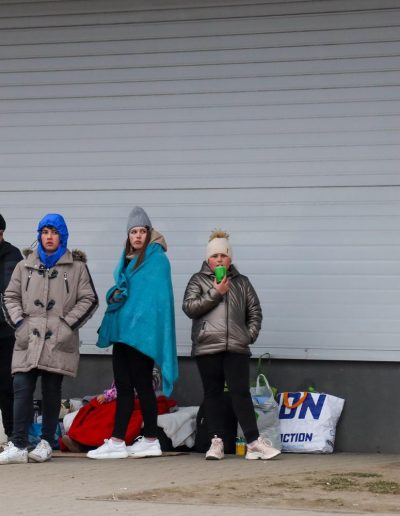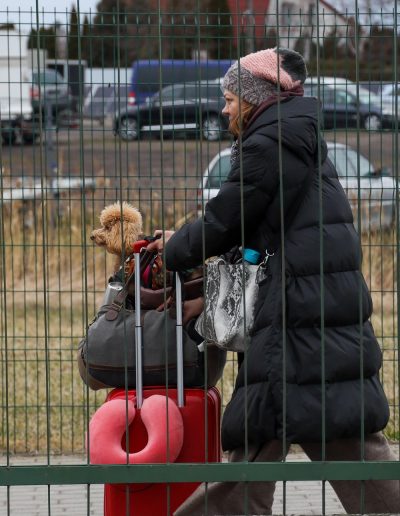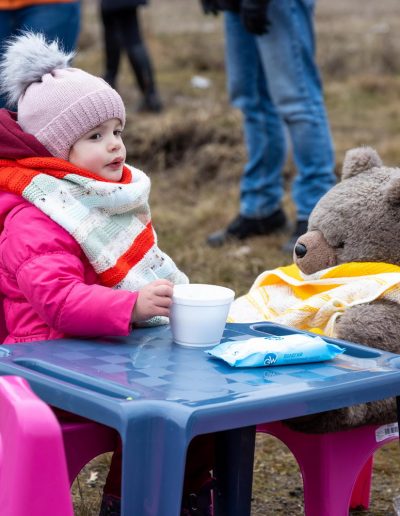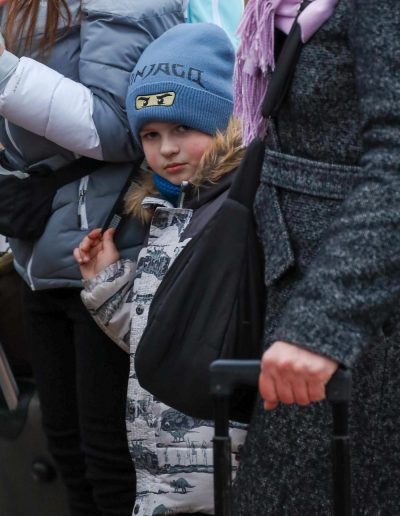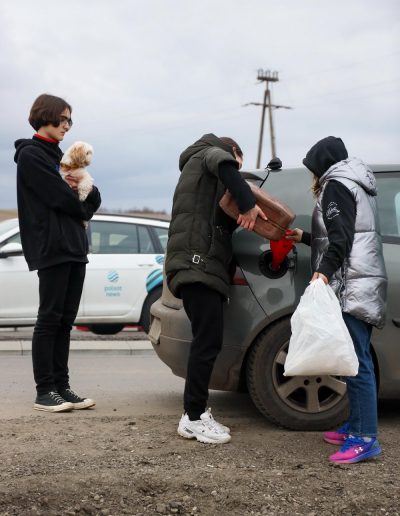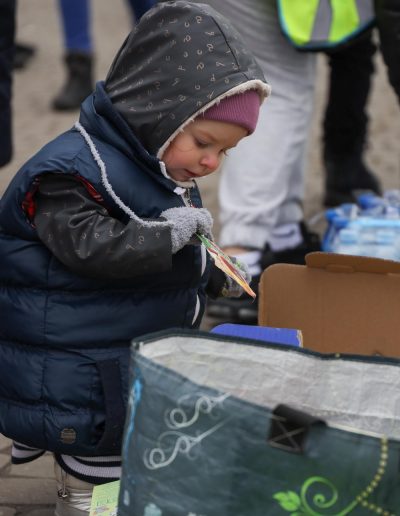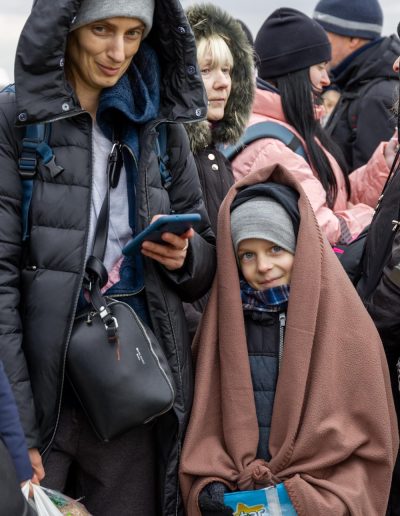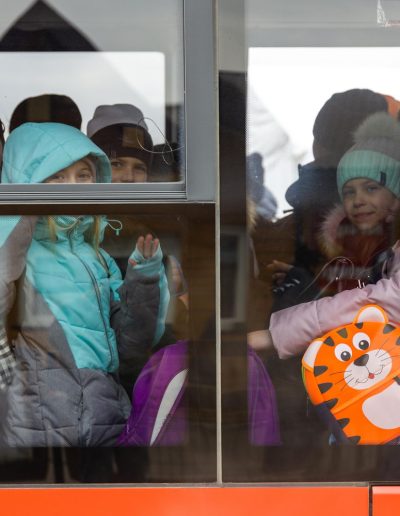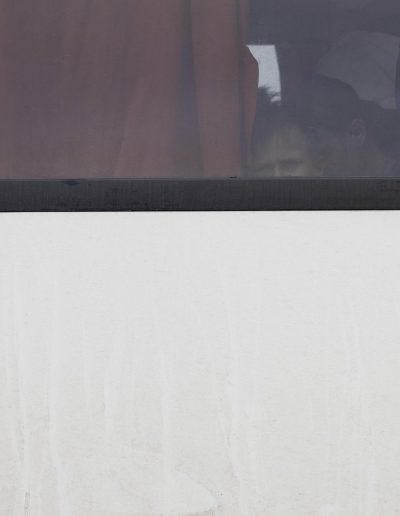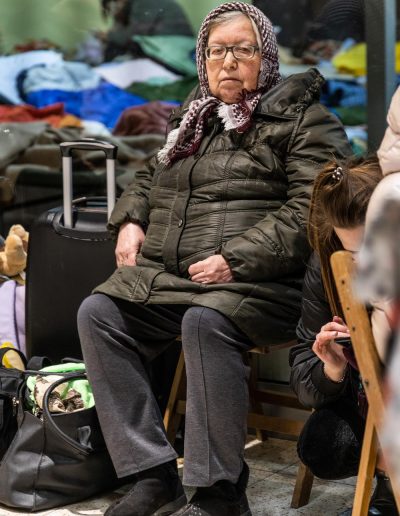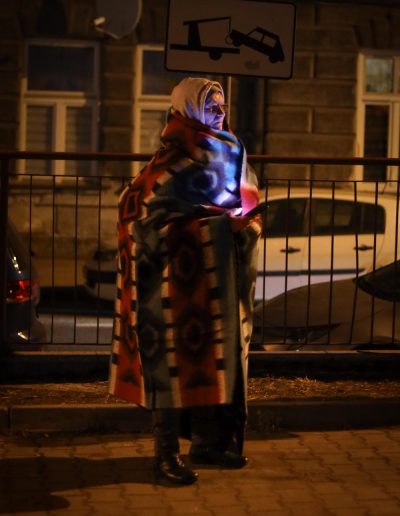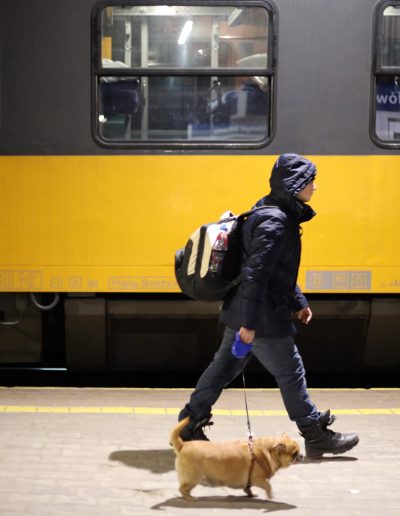barbitta-nestor-una-abuela-sola
This old lady crossed the border alone, carrying only a small bag. Every now and then she stops and looks back, her life is behind her, her homeland, who knows if she will ever see it again.
barbitta-nestor-al-llegar-hay-esperanza
Many families, few with men, all arrive at Medyka Pass. The volunteers welcome them with warm clothes, blankets, hot food, toys and sweets.
barbitta-nestor-el-arte-siempre-salva
This young Ukrainian girl plays her guitar while waiting for the bus in Medyka.
barbitta-nestor-mirada-de-adulto-1
Boredom and misunderstanding. Not all children understand the long waits.
barbitta-nestor-familia-que-espera
A few meters from the border, a family awaits a new destination in front of a customs warehouse.
barbitta-nestor-mirada-de-adulto-2
A child’s reality turned into an adult craze grows up faster than expected.
barbitta-nestor-no-hay-combustible
Many cross the border in their vehicles, the cost of oil has skyrocketed with the war and there is a shortage of fuel.
barbitta-nestor-sopa-instantanea
A little girl imitates her mother picking up some of the donations at the border point.
barbitta-nestor-madre-e-hija
They are at the head of the line waiting for the arrival of the bus that will take them to the city and away from the war.
barbitta-nestor-el-bus-1
After waiting for a while in the open, boarding a bus can feel closer to the destination than at the beginning of the trip.
barbitta-nestor-el-bus-2
Many journalists, photographers and cameramen wait at the border for the arrival of the refugees. A child observes from the window of the bus this curious fauna that stalks him.
barbitta-nestor-en-el-centro-de-refugiados
A lady waits in the chaotic crowd at the refugee reception center.
barbitta-nestor-esperando-noticias
It is night and very cold, she waits for other trains that are arriving, maybe someone from her family will come on them.
A 900 km de Berlín se encuentra Przemyśl, en Polonia. Es la ciudad más grande cerca del paso fronterizo de Medyka en la frontera ucraniana. Allí fuimos con el fotógrafo alemán Jakob Schottstädt. Gracias a la colaboración de muchas personas, pudimos cubrir los gastos de nuestro viaje y documentar lo que les ocurre a los refugiados que huyen de la guerra en Ucrania. Este es sólo uno de los puntos de la frontera, pero hay muchos otros. Mientras escribo estas líneas, miles de personas siguen escapando de la locura y muchos miles más mueren allí por los constantes bombardeos del ejército ruso.
Cuando llegamos a los distintos puntos de acogida de refugiados, la primera impresión es de orden en el caos. Los voluntarios van y vienen, algunos soldados vigilan el lugar con la cara cubierta. A veces una marea de gente se agolpa en algún espacio consultando, buscando orientación, se forman filas, la sensación es que están perdidos, no saben por dónde ir, el panorama es desolador.
Han dejado todo atrás, algunos sólo traen una bolsa, su vida ha quedado atrás y no tienen más que lo que llevan consigo.
Los refugiados sólo hablan ucraniano o ruso, es muy difícil comunicarse y no paran de llegar y llegar.
El frío es terrible, la cantidad de gente es demasiada, la sensación de que lo que hacemos es muy poco.
Es imposible estar en su piel, sólo podemos empatizar con ellos, sin olvidar que podríamos ser nosotros, cualquiera de nosotros.
Hoy todos los ojos del mundo están puestos en Ucrania pero en muchos otros lugares hay personas que, como ellos, ni más ni menos, están siendo desplazadas de sus hogares, dejándolo todo, quedándose sin nada.
Este es un recuerdo visual de unos días en la frontera, donde la solidaridad es el capital más importante que podemos tener los seres humanos.
Una demostración más de lo ridículo de las guerras, de lo injustificable. Hoy grito fuerte: no a la guerra, no a la guerra.

